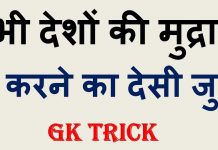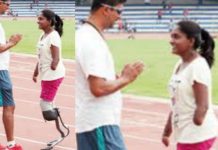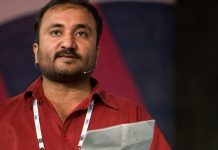Detailed Current Affairs For UPSC – 9th July 2016
Dear Sehpaathians
We are here with out detailed current affairs prepared specially for the exam of UPSC and SSC CGL. These current affairs include the full detailed description of the top 5 headlines of the morning, concerning to National, international, economic matters, sports and other news important for you.
MoUs between India and Mozambique
Three agreements were signed in areas of drug trafficking, pulse trading and sports between India and Mozambique during PM Modi’s recent visit to the country.
The three Memoranda of Understanding (MoU) are:
- On reduction of drug trafficking and psychotropic substances and related materials.
- On cooperation in the field of youth affairs and sports.
- On long term agreement for purchase of pulses.
Key aspects of the MoUs:
- Mozambique will be focusing on the production of tur dal (Pigeon Peas) to facilitate the long term trade goals with India.
- The imports are aimed at dropping the consistent inflation of pulses that has been over 30% since a few months. The import deal has been signed for a duration of five financial years (till 2020-21).
- The trade will either be held by both the governments directly or through government-nominated private channels.
- The MoU on drug trafficking will aim at the reduction of the trade of psychotropic substances and related materials.
Pizzas in Kerala get a 14.5% ‘fat tax’ topping
Kerala has announced a 14.5% “fat tax” on pizzas, burgers, sandwiches and tacos sold through branded outlets. This announcement is in sync with the World Health Organization’s advocacy of using fiscal tools to promote healthy eating.
Will it have any positive outcomes?
According to the government, “the ‘fat tax’ may not stop children from eating junk food altogether. But there will definitely be a drop in consumption because many parents will put their foot down when it comes to spending more.”
- Also, like a cigarette tax and an alcohol tax, a fat tax would dissuade children from eating a lot of energy dense foods.
- Although the outcome is still being debated, the British Medical Journal said a year ago that consumption of ‘junk food’ fell in Denmark by 10 to 15%.
- Data from Finland show demand for sugar, sweets and sugary drinks is quickly affected by prices, particularly among less affluent sections, and helps cut body weight and thus diabetes risk.
Background:
Worldwide, obesity rates have prompted governments to consider imposing a tax to slow sales of food laden with saturated fat and sugars. Denmark introduced a surcharge a few years ago on foods that contain over 2.3% saturated fat, drawing criticism about excessive bureaucracy. It was abolished in 15 months.
SC ends impunity for armed forces in disturbed areas
Supreme Court has ruled that armed personnel cannot just shoot to kill militants who create internal disturbances under the presumption that they are enemies, and would face criminal prosecution if found using excessive force even in areas where the Armed Forces Special Powers Act (Afspa) is in force.
- The verdict is likely to have far reaching consequences in places where security forces have been insulated by Afspa to carry out counter-insurgency operations.
Important observations made by the Court:
- Indefinite deployment of armed forces in the name of restoring normalcy under AFSPA “would mock at our democratic process”, apart from symbolising a failure of the civil administration and the armed forces.
- It does not matter whether the victim was a common person or a militant or a terrorist, nor does it matter whether the aggressor was a common person or the state. The law is the same for both and is equally applicable to both.
- There is no concept of absolute immunity from trial by a criminal court if an Army man has committed an offence.
Background:
The judgment came on a plea by hundreds of families in the north-eastern State of Manipur for a probe by a Special Investigation Team into 1,528 cases of alleged fake encounters involving the Army and the police.
Implications:
- The verdict tears down the cloak of secrecy about unaccounted deaths involving security forces in disturbed areas and serves as a judicial precedent to uphold civilian and human rights in sensitive areas under military control. Henceforth, a thorough enquiry will be conducted into “encounter” killings in disturbed areas.
- Also, errant armed personnel would face criminal charges notwithstanding the immunity conferred under Afpsa for anything done in “lawful exercise” of “official duties.”
What is Afspa?
Afspa, which was enacted in 1958 amid the nascent Naga insurgency, gives powers to the army and state and central police forces to shoot to kill, search houses and destroy any property that is “likely” to be used by insurgents in areas declared as “disturbed” by the home ministry.
Security forces can “arrest without warrant” a person, who has committed or even “about to commit a cognizable offence” even on “reasonable suspicion”. It also protects them from legal processes for actions taken under the act.
Which states are under Afspa?
It is in force in Assam, Jammu and Kashmir, Nagaland, Manipur (except the Imphal municipal area). In Arunachal Pradesh, only the Tirap, Changlang and Longding districts plus a 20-km belt bordering Assam come under its purview. And in Meghalaya Afspa is confined to a 20-km area bordering Assam.
What are ‘disturbed’ areas?
The state or central government considers those areas as ‘disturbed’ “by reason of differences or disputes between members of different religious, racial, language or regional groups or castes or communities.”
How is a region declared ‘disturbed’?
Section (3) of the Afspa empowers the governor of the state or Union territory to issue an official notification in The Gazette of India, following which the Centre has the authority to send in armed forces for civilian aid.
Once declared ‘disturbed’, the region has to maintain status quo for a minimum of three months, according to The Disturbed Areas (Special Courts) Act, 1976.
What is state government’s role?
The state governments can suggest whether the act is required to be enforced or not. But under Section (3) of the act, their opinion can be overruled by the governor or the Centre.
Is the act uniform in nature?
Initially, it was meant only for Assam and Manipur, where there was an insurgency by Naga militants. After the reorganisation of the northeast in 1971, the creation of new states like Manipur, Tripura, Meghalaya, Mizoram and Arunachal Pradesh paved the way for the Afspa to be amended, so that it could be applied to each of them. The amendments contain different sections as applicable to the situation in each state.
SC to consider whether NHRC is ‘toothless tiger’
The Supreme Court has proposed to consider the grievance of the National Human Right’s Commission (NHRC) that it has become a “toothless tiger”. NHRC had also recently complained about difficulties in discharging its duties, including non-cooperation from State governments and lack of staff.
- The court has noted NHRC’s submission that “it was helpless in taking any coercive measures since it has no power to take action against persons or authorities who do not follow the guidelines laid down by it nor does it have power to give directions or pass orders but can only make recommendations.”
- The matter was considered by the court while dealing with a PIL petition on extra-judicial killings in militancy infested Manipur and the plea for repealing the Armed Forces (Special Powers) Act.
NHRC:
It is a statutory body established in 1993.
Composition:
- It consists of a Chairman and 4 members. Chairman should be a retired Chief Justice of India. Members should be either sitting or retired judges of the Supreme Court or a serving or retired Chief Justice of a High Court and 2 persons having practical knowledge in this field.
- Ex officio members are the chairmen of National Commission for Scheduled Caste, National Commission for Scheduled Tribes, National Commission for Minorities and National Commission for Women.
Appointment: The chairman and members are appointed on the recommendation of a 6 member committee consisting of Prime Minister, Speaker of the Lok Sabha, Deputy Chairman of the Rajya Sabha, leaders of opposition in both the houses of parliament and Union Home Minister.
Term: Term of the chairman and members is 5 years or 70 years whichever is earlier. After retirement they are not eligible for further reappointment.
Removal: President has to refer the matter to Supreme Court and if after enquiry Supreme Court holds it right then they can be removed by the President.

















